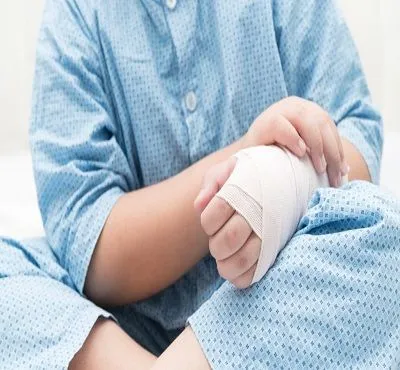Injuries to the arm, wrist, and hand are common in car accidents. This is because drivers have at least one hand gripping the steering wheel at the time of collision. Sometimes, improper airbag inflation can also cause a hand injury.
Hand injuries from car accidents can leave you unable to work, or even with a permanent disability. These car accident injuries can adversely impact the career of someone who works with their hands, such as a welder or surgeon.
car accident lawyers can help an accident victim pursue compensation if they have sustained a hand injury. They can help you to get compensation for your hand or arm injury.
Common hand and wrist injury from car accident

- Fractures: During a car crash, if the hand hits forcefully on areas of the car, it can cause broken wrists, broken fingers, or even crushing injuries.
- Wrist sprain: This can occur when a wrist stretches too far, but no ligaments or tendons tear. These injuries are common in car crashes.
- Torn ligaments: Ligament tears fall under partial or complete tears. If a torn ligament requires surgery, it is a complete tear.
- Joint dislocation: A wrist dislocation can happen suddenly and requires immediate treatment after a crash.
- Tendon damage: Tendons connect muscles to other muscles. Car crash trauma can lead to inflamed tendons, otherwise known as tendonitis.
The healing time for broken hand recovery can take several weeks. However, recovery timing depends on factors such as overall health, the severity of the injury, and the location of the hand injury.
What is a broken hand?
A broken hand refers to a crack or break in one or more bones present in your hand. Hand injuries may occur due to:
- Direct blows
- Slip and fall accidents
- Car accidents
- Bicycle accidents
- Motorcycle accidents
How long does swelling last after a hand injury?
Inflammation begins within the first hour of a broken hand injury. Swelling may peak in one to three days, or even weeks after the accident. In the inflamed phase, you may experience swelling and excessive heat where your hand is injured. This is usually normal and indicates that your body is healing, but talk with your healthcare provider if you’re concer0.ned.
What are common hand injuries after falling?
Common hand injuries from slips and falls can include bruising on the palms or a broken palm. You may notice this injury right away when you try to move your hands in an attempt to stand up. Dislocation, pain, or swelling can all point to an injury. However, some people have no symptoms of injury until well after the fall.
What are the consequences of broken hands?
The hand makes up one of the most important parts of the human body. Many careers and activities are dependent on hands, and even the smallest loss of function can result in stiffness, aching or lifelong disability. This is especially true when there is damage to a person’s dominant hand.
Pain and stiffness may reduce after surgery or treatment. However, a victim can even experience arthritis from bone fractures after many years. Therefore, you need to consult a healthcare professional to get specific information about an injury.
A broken hand can have serious consequences including permanent pain, loss of work, inability to participate in daily activities, and more. These consequences can greatly affect a person mentally, physically, and financially.
What are the risk factors of a broken hand?
The risk of a broken hand may increase if you participate in soccer, rugby, hockey, football, or any other sports. Moreover, if bones become weak then osteoporosis may follow. Osteoporosis can worsen a hand injury and increase the risk of more fractures.
How to treat a broken hand
After sustaining hand injuries, it is important to follow first-aid procedures such as avoiding moving your hand, applying ice to reduce swelling, and stopping the bleeding. Broken bone first aid aims to limit any further injury. Furthermore, it is beneficial for both healing and mental wellbeing to minimize pain. Treatments can include the following:
- Casts, splints, or braces: For bones to line up correctly, immobilization is required. To avoid hand movement, you can make use of a cast, splint, or brace. However, some fractures such as metacarpal fractures may require surgery, as they cannot heal with immobilization.
- Pain medications: You may need intermittent or ongoing pain medication as after an accident or a fall.
- Surgery: A broken hand may or may not require surgery. However, surgery is essential with open fractures or crushing injuries, or if a break is extended to a joint.
In some cases, an accident victim can require immediate medical attention or even same-day hand surgery.
Documenting your broken hand injury
To file a hand injury claim, you need evidence of the injury and any medical treatment you have received for it. Therefore, gathering evidence is top priority. After meeting with a healthcare provider, it’s vital to preserve all medical records. Furthermore, keeping a list of medications from your doctor for pain management is also important. Your case may rely on these medical records that prove the severity of your hand injury.
If you are suffering from a broken hand due to an auto accident, you may pursue hand injury compensation for lost wages. If you are out of work, you must keep a track of how many days you miss. Profit loss statements can be beneficial for your case.
Contact a Philadelphia bone fracture lawyer if you sustained a hand injury from a car accident that wasn’t your fault. Call us today at (267) 314-6039, fill out our contact form, or click the live chat button to talk with us.
